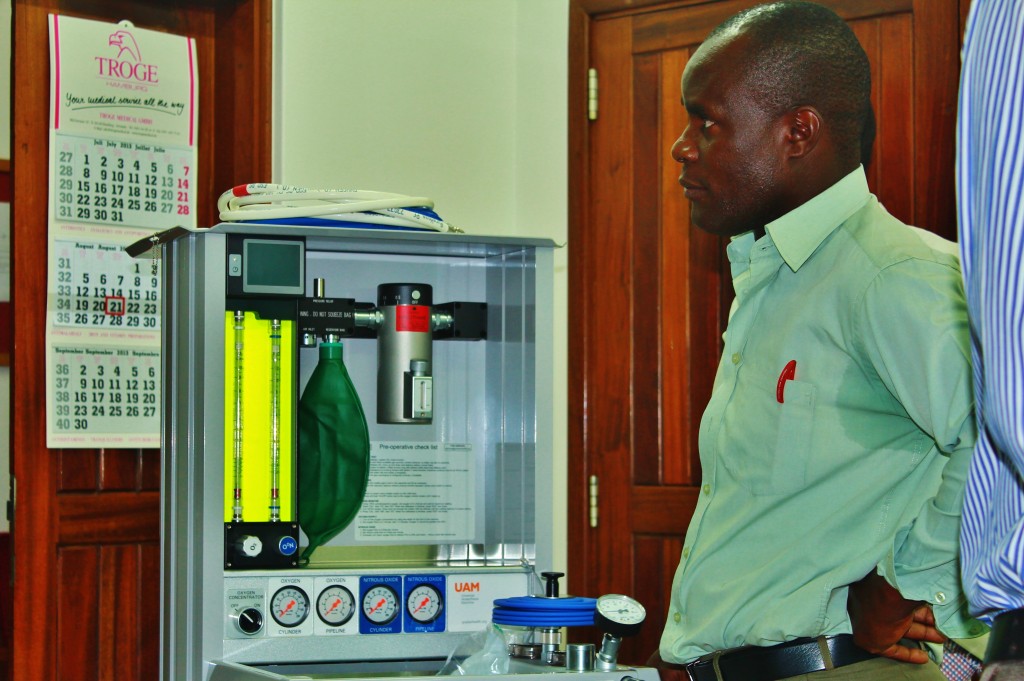
Introducing Our Inaugural Biomedical Engineering Champion – Mr. Kenneth Kaunda Otieno!



Biomedical engineers and technicians are some of the unsung heroes of hospital operations. Without someone to maintain and repair the medical equipment used daily, clinicians simply would not be able to practice the best medicine they are capable of and, as a result, patient care would suffer. Biomedical engineers and technicians fill this critically important role.
We are fortunate to work with biomedical engineers and technicians around the world, and want to introduce them and their work to a wider audience in the hopes of catalyzing interest in their field and its unique and vital contribution to global health.
Our inaugural “Biomedical Engineering Champion” is Kenneth Kaunda Otieno, whom we first met in Kampala, Uganda. Kenneth’s passion for providing his expertise to hospitals all over Uganda is as evident as his skill at doing so, and we’re delighted to introduce you to him. His interview has been lightly edited for length and clarity.

Kenneth Kaunda Otieno
Title: Biomedical Engineering Technologist (BET), Joint Medical Store
1) How did you choose to specialize in biomedical engineering and where did you train?
My Parents wanted me to become a nurse, because nursing was the most visible and important profession in our village after teachers at that time. As a I grew up I had a lot of interest in repairing things. At primary I was repairing radios. When I finished high school I got a scholarship to study biomedical engineering by Austrian government through Kenya ministry of health, and the course had just started in the country some few years back.
I trained at the Mombasa polytechnic university college in Kenya.
2) What do you see is the greatest challenge to the safe, reliable delivery of anaesthesia and surgery in Uganda (and in east Africa more broadly)
The greatest challenge to the safe, reliable delivery of anaesthesia in Uganda and east Africa in general,
Is the running costs the machines especially the gas supplies and the qualified personnel to maintain the machine. So in many hospitals you find the machines kept in the stores for lack of Oxygen or has some small faults

3) Can you share an experience about your time helping repair equipment in hospitals, and how it has affected your career?
When I finished college I worked briefly in what we call here private for profit hospital. They had good machines and well maintained. Then I joined an NGO serving Non for profit church based hospitals in Kenya. I was covering about 15 hospitals and several health centers in western Kenya. Here I learned to be creative and adventurers. I modified equipment, got parts from old ones to revive others, did a lot of user training and I realized this reduced significantly frequency of breakdowns. When I joined Joint medical store in Kampala I had acquired a lot of experience in many equipment through trainings and actual work. I had special training in anaesthesia, X-ray and lab equipment for these were the biggest problems of most of these hospital
In JMS I cover the whole country, traveling in deep rural health units and I repair almost every medical equipment. It gives a lot of joy when I have revives an equipment and people are served. Most of these areas are hard to reach and no technician would like to go to unless they are paid good money which some of these health units don’t have. When not in the field I work with my colleague in the workshop.
4) What do you enjoy doing when you are not working? What is one interesting fact we may not know about you?
When not working I enjoy two things: reading and listening to music.
One interesting fact you may or may not know about me is that I am a sanguine and therefore I have a lot of stories to tell at anytime, anywhere, factual or fiction.